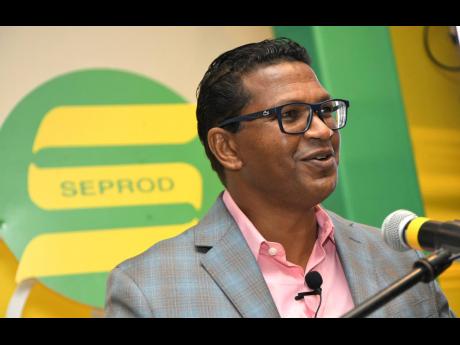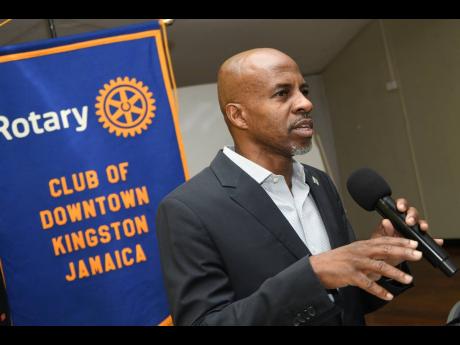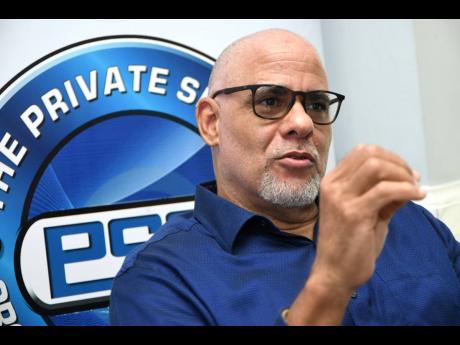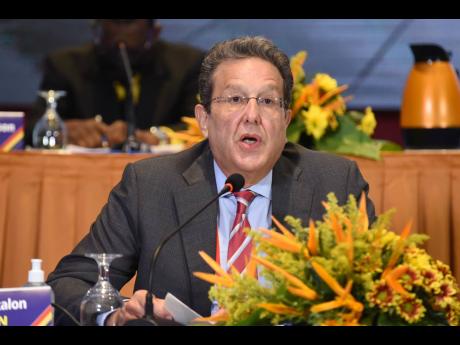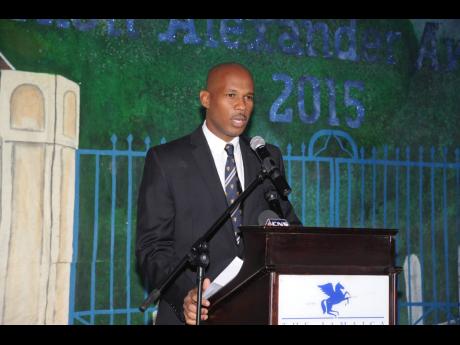Cut corrupt ties and you cut crime
Private sector leaders, stakeholders urge politicians to take hard decisions to rescue country from criminals
As the Major Organised Crime and Anti-Corruption Agency (MOCA) bolsters its efforts against corruption in Jamaica, members of the private sector and other stakeholders continue to press for the cutting of ties between politicians and criminals,...
As the Major Organised Crime and Anti-Corruption Agency (MOCA) bolsters its efforts against corruption in Jamaica, members of the private sector and other stakeholders continue to press for the cutting of ties between politicians and criminals, highlighting again the drastic implications it has on the nation’s economy.
It is almost like a scratched record, Seprod Group CEO Richard Pandohie said as he highlighted the desensitisation of Jamaicans to the crimes that plague their communities, and ultimately, the businesses that suffer because of it leaving said Jamaicans jobless.
“Some hard decisions need to be taken. The politicians need to separate themselves from it completely – the garrison community, the enforcers. Politicians need to separate themselves and be clear that we are standing for one Jamaica free of this type of thing,” urged Pandohie.
“Crime has become politicised. It has become a JLP (Jamaica Labour Party) problem or a PNP (People’s National Party) problem. But it has to be a national problem that is separated from politics. They get in after elections, they lose focus,” he argued, noting that Jamaicans ought to start holding leaders more accountable.
Recalling several ineffective crime plans for Jamaica over the years, Pandohie said, “We keep doing this and then it just seems to become a one-minute or two-minute talk. It doesn’t get the cooperation or the traction to get through.”
Developed in 2020, Jamaica’s Crime Consensus may be cited as a recent example. National Security Minister Dr Horace Chang has said the programme and its oversight body – the Crime Monitoring and Oversight Committee (CMOC) – have done their job, which was to “avoid any divisiveness on policy going into the election campaign”.
“Now we have to look at where we go from here,” Chang told The Sunday Gleaner of the consensus and its committee, which comprises non-partisan stakeholders from the private sector, church, civil society, academia and the political directorate.
Last week, businessman and CMOC chairman, Lloyd Distant, said that there are amendments to be made to the consensus, outlining further work to be done as part of short-term efforts to nip crime.
“We are currently working on updating the consensus to include identifying and measurement of more short-term strategies and initiatives that are expected to impact on crime. The first one took nine months, and I’m hoping that by the time we get into November, the agreement will be updated,” he said.
Distant said it was too early to divulge some of the short-term initiatives to be added to the covenant, but said conversations are being had with Chang about the expansions.
The deliverables and tasks of the original consensus include: social, community and cultural transformation; a transformation of the police force; legislative changes; and anti-corruption measures.
“To date, 11 of the 30 targets due to be completed by the end of September 2022 have been satisfactorily achieved,” reads a report prepared by CMOC two months ago. “Three have had their timelines reset 12 are Red, meaning timelines have been missed without satisfactory justification; two are Amber, meaning they are tracking behind and are likely to miss the agreed timeline; and four are Green, meaning that they are on track to being met.”
A GAME-CHANGER
Anthony Clayton, professor of sustainable development at The University of the West Indies, said Jamaica’s greatest challenge is its general acceptance of the high homicide numbers.
“People are so used to living with the level of violence that you would not normally see outside of a war zone. The only thing that gets public attention here in any sustained manner is when you have a particularly heinous activity involving children,” he charged.
“We kill more people in a week than countries like the UK will have in an entire year, and that is a country with a population of little over 20 times more than Jamaica,” he continued. “That is perhaps why we don’t get the sustained public pressure on politicians to really sever the links [with] organised crime, get the corruption out of public boards, and go after the gangs relentlessly until they are dismantled.”
With regard to corruption, MOCA has promised a new hotline in the coming months, primarily targeted at weeding out public corruption.
Basil Jarrett, director of communications at MOCA, is hoping the new line will foster greater confidence in the independent investigation body.
MOCA is eight years old and its high-level probes into crimes such as lottery scamming are expected to have an impact on the ground within communities.
“We expect that a lot will come through our new tip line, especially as it relates to corruption. We think it is going to be a game-changer for us, especially in our drive to stamp out public sector corruption,” Jarrett told The Sunday Gleaner. “We believe that MOCA is Jamaica’s elite investigative agency. The people at MOCA meet the highest integrity and standards.”
‘A NATIONAL CRISIS’
Last week, businessman and chairman of ICD Group Holdings, Joseph Matalon, said the country is still in need of a clear vision from politicians on addressing crime.
“One of the things I really wish is if we could get a clearer consensus from the two political parties as to how we are going to deal with this, not only the two political parties, but them enrolling civil society more broadly. That is what I think is necessary,” Matalon told The Sunday Gleaner.
“All Jamaicans need to recognise that the police [alone] can’t do it, the Government [alone] can’t do it. Everybody has to put their shoulder to the wheel on this one. That is what it requires; this is a national crisis.”
Earlier this year, the Private Sector Organisation of Jamaica (PSOJ) launched Project Star in sections of St James. It is aimed at “pulling all stakeholders together, including the private sector, civil society, government and all other bodies, to focus on social, economic and community transformation”, said PSOJ president Keith Duncan.
Matalon, who is also chairman of the RJRGLEANER Communications Group, endorsed Project Star as a worthwhile initiative and urged other members of the private sector to urgently get on board.

